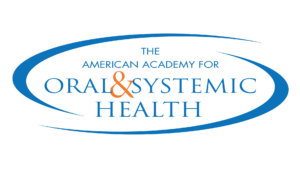Contributed by Patti DeMatteis, RDH
Diabetes is increasing at an alarming rate in the United States. Latest statistics show 37.3 million people, or 11.3% of the U.S. population, have diabetes. An estimated 28.7 million people have been diagnosed with diabetes. Approximately 8.6 million people have diabetes but have not yet been diagnosed.
With this increasing number of patients with some type of diabetes, I wish to draw your attention to a pressing issue that continues to plague millions in the United States: the perilous consequences of denying the dangers of diabetes.
Diabetes denial, a phenomenon where individuals ignore or downplay their diabetic condition, poses significant risks for debilitating and even fatal consequences to their health and well-being. This phenomenon can also be seen on the part of some healthcare providers, where the present standard of care presses them to spend insufficient appointment time with their patients… Oftentimes this results in failure to address patients’ symptoms of insulin resistance, or prediabetes, and neglect to test and treat thoroughly enough or early enough in the disease process. Daily research supports that insulin resistance and even type 2 diabetes can be reversed. As a dental hygienist, I have seen for myself how periodontal disease and diabetes affect each other. Typically, when patients achieve optimal oral health, their blood sugar becomes much more stable.
Let’s delve into the multifaceted dangers of diabetes denial and emphasize the urgency for awareness, acceptance, and proactive management of this chronic illness.
Firstly, let us acknowledge the stark truth: diabetes is not a condition to be taken lightly. Whether it be type 1, type 2, type 3 or gestational diabetes, the implications of uncontrolled blood sugar levels can be severe and far-reaching. From cardiovascular complications to neuropathy, retinopathy, periodontal disease, and even life-threatening ketoacidosis, the spectrum of diabetic complications is extensive. Yet, despite these alarming realities, many individuals continue to turn a blind eye to their diagnosis, opting instead to live in a state of denial. One of the most concerning aspects of diabetes denial is its insidious nature. It creeps into the psyche of the affected individual, fostering a sense of complacency and false security. They may convince themselves that occasional indulgences in sugary treats or neglecting to monitor their blood glucose levels will not result in any harm. However, the truth remains immutable: diabetes is a chronic condition that demands proactive and vigilant management and adherence to prescribed treatments and lifestyle modifications.
Moreover, diabetes denial not only jeopardizes the health of the individual, but also imposes significant burdens on healthcare systems worldwide. Uncontrolled diabetes leads to frequent hospitalizations, increased healthcare costs, and a diminished quality of life for those affected. The ripple effects extend beyond the individual, affecting families, caregivers, and society at large.
Furthermore, the psychological toll of diabetes denial should not be underestimated. Living in denial can breed feelings of guilt, shame, and anxiety, exacerbating the already daunting challenges of managing a chronic illness. It creates barriers to seeking support, education, and access to essential healthcare services, perpetuating a cycle of additional life-threatening conditions.
So, what can be done to address the dangers of diabetes denial? The answer lies in education, empowerment, and early diagnosis and treatment. As healthcare providers, it is our duty to provide comprehensive education about diabetes, its management, and the potential consequences of denial. We must also step up our game with early diagnosis and treatment and foster an environment of empathy and understanding, free from judgment or blame, where individuals feel supported and encouraged to confront their diagnosis head-on.
Additionally, empowering individuals with a plethora of cutting-edge tools and resources they need to effectively manage their diabetes is paramount. This includes access to blood glucose monitoring devices, medications and supplements, nutritional guidance, and psychological support services, to name a few. By equipping individuals with the necessary tools, skills and support networks, we can empower them to take control of their health and overcome the barriers of denial.
In conclusion, the dangers of diabetes denial are real, pervasive, and potentially life-threatening. As healthcare providers and advocates, it is incumbent upon us to confront this issue with compassion, diligence, and determination. By raising awareness, promoting acceptance, and providing unwavering support, we can empower individuals to embrace their diabetic condition and lead fulfilling, healthy lives. As medical and dental providers, let us stand united in our commitment to combat diabetes denial and pave the way towards a brighter, healthier future for all.
Join AAOSH Today!
 Stay informed about upcoming events that foster collaboration, education, and progress in oral-systemic health!
Stay informed about upcoming events that foster collaboration, education, and progress in oral-systemic health!



